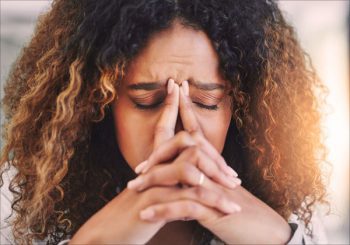By Frankie Wallace
Guest Writer for Wake Up World
Anxiety is one of the most common mental health conditions across the globe. According to the National Alliance on Mental Illness, over 40 million adults in the U.S. have some type of anxiety disorder, as well as 7% of children ages 3-17.
While anxiety impacts everyone differently, the symptoms are often the same. They include deeply-rooted fears and worries that can cause everything from a racing heart rate to sweating. If you struggle with anxiety for a long time, it can increase your risk of heart problems and may even weaken your immune system.
[pro_ad_display_adzone id=”110028″]
For many people with Generalized Anxiety Disorder (GAD) or other types of anxiety, triggers can be a huge problem.
You might not walk around in constant fear, but if something triggers your worries, it can send you into an anxious spiral that causes your symptoms to flare up.
So, what can you do to cope with your anxiety triggers? It starts with understanding what they really are. Once you have a handle on your triggers, you can take control of your life again.
What Are Common Anxiety Triggers?
Because millions of people deal with anxiety, it’s impossible to pinpoint every possible trigger that impacts people across the world. But, some seem to be more common than others, and certain things that can cause your anxiety to become worse. Some of the most common anxiety triggers are:
- Health issues
- Medications
- Caffeine
- Negative thoughts
- Financial problems
- Conflict
- Social/public events
- Stress
- Personal triggers like upsetting situations or trauma
Whether these particular triggers impact your anxiety or not, how can you understand and identify them? The easiest way is to take note of when your anxiety is noticeable. When does it suddenly feel overwhelming? Be honest with yourself and accept the triggers for what they are, rather than trying to ignore them. It can be helpful to keep a journal with you to write down exactly what you’re feeling when anxiety takes over, and what was happening at the time. That will give you a better idea of what your triggers are and how you can handle them.
Managing Anxiety Every Day
Once you have a better understanding of what your triggers are, you can try to eliminate or reduce them in your life. In some cases, that’s easy. Avoid certain scenarios. Stop spending time with specific people.
Other times, triggers are impossible to avoid. So, you need to learn how to cope every day. Using management techniques to calm your anxiety and weaken your symptoms is a great way to feel more “in control” of your mind and body, and there are many options you can try, including:
- Mindfulness
- Meditation
- Exercise
- Changing your sleep habits
- Talk to someone
Having a support system is crucial for someone with anxiety. It could be your family members, friends, or your partner. While dating someone with anxiety isn’t always easy, don’t be ashamed to talk about your struggles with your partner. Tell them about your condition, let them know what you need from them, and openly communicate as often as possible. They’ll support your healing process and work with you through the challenges.
You can also try more involved techniques to manage your anxiety, like regulating your hormones. Studies have shown that stress hormones like cortisol can induce anxiety at any time – especially in triggering situations. Hormone regulation can help to reduce levels of cortisol and make you feel calmer. You can naturally regulate your hormones through activities like exercise, changing your diet, and getting better sleep.
Getting the Help You Deserve
Anxiety doesn’t often go away on its own.
But, it’s very manageable when you combine everyday techniques on your own with professional mental health treatment.
In 2019, nearly 20% of U.S. adults received some kind of mental health treatment. Unfortunately, there are still some stigmas surrounding mental health, which can keep people from getting the help they need and deserve.
However, those stigmas are starting to fall, especially with the rise in telehealth. If one “good” thing came from the COVID-19 pandemic, it was the popularity of telemedicine, and the way more people have been able to connect with doctors and therapists across the country.
That makes it easy to manage your mental health on your terms. For example, if you don’t want to take any prescription drugs and would prefer a more holistic approach to managing your anxiety, you can research different therapists or counselors who will help you with your needs.
Whether you talk to a mental health professional in person or online, they can work with you to get to the root of your anxiety. It’s not always an easy thing to discuss, but it’s a necessary step if you truly want to take control of your life again. A therapist can also offer various techniques you can use every day to keep your symptoms at bay, even when you’re dealing with triggers.
Understanding your anxiety triggers is the first step in managing your mental health. Pay attention to the things that get to you the most, so you can learn how to manage your anxiety around them until they don’t hold power over you anymore.
About the author:
 Frankie Wallace is a freelance writer from the Pacific Northwest. She enjoys writing about health, wellness and education, but occasionally goes back to her roots with socially active news journalism. Frankie spends her free time cultivating her zero waste
Frankie Wallace is a freelance writer from the Pacific Northwest. She enjoys writing about health, wellness and education, but occasionally goes back to her roots with socially active news journalism. Frankie spends her free time cultivating her zero waste
garden or off hiking in the mountains of the PNW with her loved ones.
[pro_ad_display_adzone id=”110027″]







